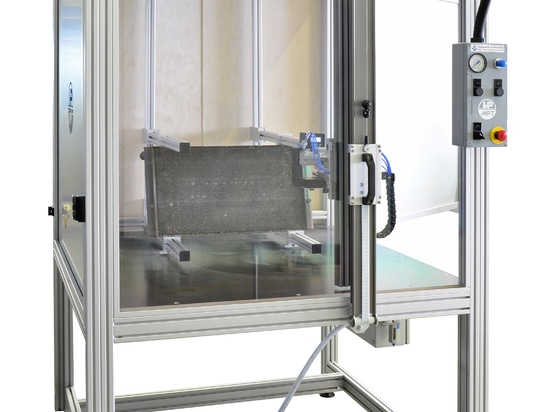
#Industry News
Test rig for stone imapct tests and multi impact tests
Determination of the impact behavior of, for example, single- or multi-layer coatings and paints or plastic composites || Testing of components regarding their resistance to stone impact
Stone impact tests are an important standardized method of material and component testing, especially for the automotive industry. In addition to many manufacturer-specific standards, the multi-impact test according to DIN EN ISO 20567-1 is of particular importance. The stone impact test according to this standard is used to determine the stone impact resistance. It evaluates the resistance of single or multiple coatings to stresses caused on vehicles by impact bodies with low mass and high speed.
With the stone impact tester from Hegewald & Peschke, the impact bodies can be shot at the specimen with a defined energy at a specific impact angle. The characteristic value for the stone impact strength is then determined by comparing the degree of damage with standardized reference images. Due to the use of approximately spherical projectiles between 4-6mm (others optionally possible), a statistical evaluation is enabled via the requirements of the standardization. Due to the large test area of the stone impact tester, which is covered with a protective enclosure, a wide variety of components and material specimens can be tested. Possible test objects in the automotive sector include vehicle parts such as radiators, engine hoods, rims, windows or floor panels.
At the Leipzig University of Applied Sciences, the test stand is also used as a multi-impact tester for other areas of application. At the Chair of Lightweight Construction with Composite Materials, panels made of fiber composites are tested regarding their impact strength. Different compositions of CFRP or GFRP materials are being researched.
INFO: Standards for stone impact tests in the automotive industry: DIN EN ISO 20567-1, FORD FLTM BI 157-06, RENAULT D24 1702, PSA D24 1312, DBS 918 127: 2020-04, SAE J400: 2012, ISO 15003: 2006, PACCAR CS0074: 2014, Daimler DBL 5416










